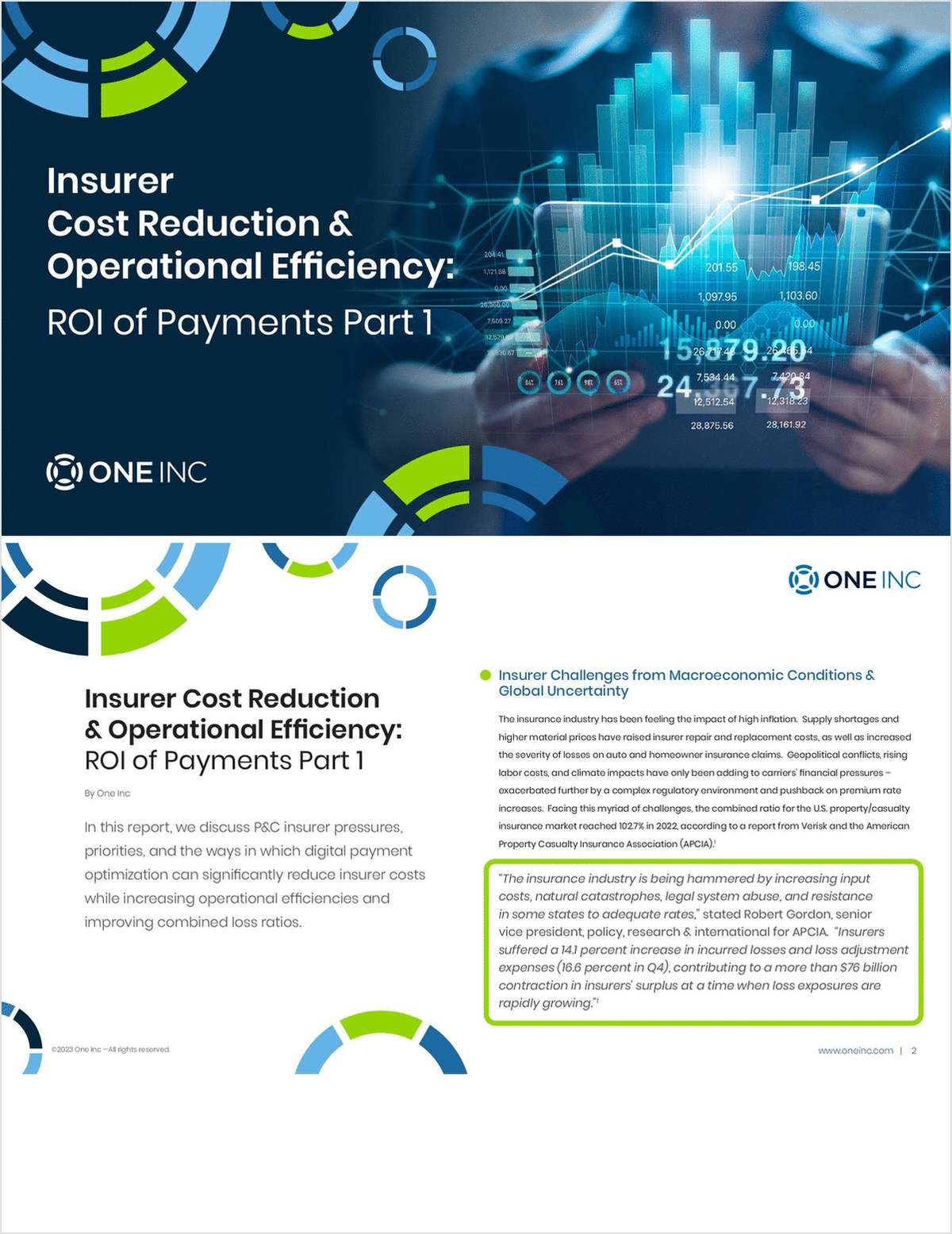Washington
Compromise legislation proposed by the Obama administration and Rep. Barney Frank would give federal banking regulators broad authority over large, troubled insurers, stirring concern within the property and casualty industry and among state officials.
 The Financial Stability Improvement Act's key language would remove the restraints on the Federal Reserve Board's authority over companies subject to consolidated regulation under the 1999 Gramm-Leach-Bliley Act.
The Financial Stability Improvement Act's key language would remove the restraints on the Federal Reserve Board's authority over companies subject to consolidated regulation under the 1999 Gramm-Leach-Bliley Act.
Moreover, "it provides specific authority to the Fed and other federal financial agencies to regulate for financial stability purposes and quickly address potential problems," according to a description of the bill provided by the House Financial Services Committee, chaired by Rep. Frank, the Massachusetts Democrat.
It allows a to-be-created Financial Services Oversight Council to use certain criteria to determine whether an institution is systemically risky. Under the bill, only federal financial services regulators could be members, with a state insurance regulator and a state banking regulator as advisory members.
It would allow the Fed, as the systemic regulator, to make recommendations as to corrective action a potentially troubled institution needs to take to ensure solvency, and says only that the Fed would have to consult with state regulators before making those recommendations.
It would also give the Federal Deposit Insurance Corp. broad authority to resolve problems with insolvent institutions declared systemically risky, as well as charge large, so-called "too big to fail" institutions to pay the cost of resolving troubles at a large bank, insurer, securities firm or hedge fund.
The Property Casualty Insurers of America, the American Insurance Association and the National Association of Mutual Insurance Companies all issued statements, pointing out that p&c companies pose no systemic risk because of the type of products they sell, their liquidity ratios and their relatively conservative businesses.
"The property and casualty industry is extremely competitive, and the companies in that industry are generally low-leveraged businesses, with lower asset-to-capital ratios than other financial institutions, more conservative investment portfolios, and more predictable cash outflows that are tied to insurance claims rather than 'on-demand' access to assets," said an AIA representative, Blain Rethmeier.
He added that "our financial regulatory standards reflect the nature of our business."
A PCI representative, Cliston Brown, said that "notwithstanding our industry's critical role in the economy, traditional property-casualty companies don't operate like banks or other financial firms." Therefore, he added, "it is absolutely critical that as lawmakers proceed on any systemic risk or resolution authority legislation, these differences are taken into account."
Jimi Grande, NAMIC senior vice president of federal and political affairs, said, "We have been explaining for nearly a year now that insurance is fundamentally different from other financial services products, and insurance does not pose a systemic risk because insurers are very liquid, they maintain low leverage ratios, are not interconnected and are heavily regulated for solvency at state level."
The fact Congress is looking at systemically risky companies "causes us some concern," Mr. Grande noted, although he said NAMIC has not considered specific remedies it might propose to remove p&c companies from the scope of the bill.
"What they are looking for is broad authority to look at anyone whom they deem significantly risky," he said. "But as we have discussed over the past few years, there are inherent dangers in identifying institutions that are too big to fail."
The National Association of Insurance Commissioners also cautioned that the oversight system envisioned by Treasury and Rep. Frank must complement, not displace, the current coordinated, national system of state-based insurance supervision.
"A regime change that results in redundant, overlapping responsibilities will result in policyholder confusion, market uncertainty, regulatory arbitrage and a host of other unintended consequences," said Connecticut Insurance Commissioner Thomas Sullivan, representing the NAIC at a hearing last week before the House Financial Services Committee.
Mr. Sullivan cited the problems of American International Group in his testimony, noting that AIG's insurance subsidiaries remained solvent "while the holding company spiraled into failure."
"The NAIC's solvency and capital standards have ensured that policyholder commitments are met and companies remain stable," he said. "State regulators have placed appropriate restrictions on the investments held by insurers."
He also said the proposed legislation should be revised to "wall off" insurance company holdings from the broader holding company, and suggested federal-state coordination on a proposed Financial Services Oversight Council to facilitate information-sharing, rather than relegate state insurance and banking regulators to an advisory role.
"Any new regulatory scheme should also "respect the strong policyholder protections states have in place," he said, adding that having "multiple sets of eyes" in the examination of holding companies "allows for checks and balances."
Want to continue reading?
Become a Free PropertyCasualty360 Digital Reader
Your access to unlimited PropertyCasualty360 content isn’t changing.
Once you are an ALM digital member, you’ll receive:
- Breaking insurance news and analysis, on-site and via our newsletters and custom alerts
- Weekly Insurance Speak podcast featuring exclusive interviews with industry leaders
- Educational webcasts, white papers, and ebooks from industry thought leaders
- Critical converage of the employee benefits and financial advisory markets on our other ALM sites, BenefitsPRO and ThinkAdvisor
Already have an account? Sign In Now
© 2024 ALM Global, LLC, All Rights Reserved. Request academic re-use from www.copyright.com. All other uses, submit a request to [email protected]. For more information visit Asset & Logo Licensing.








